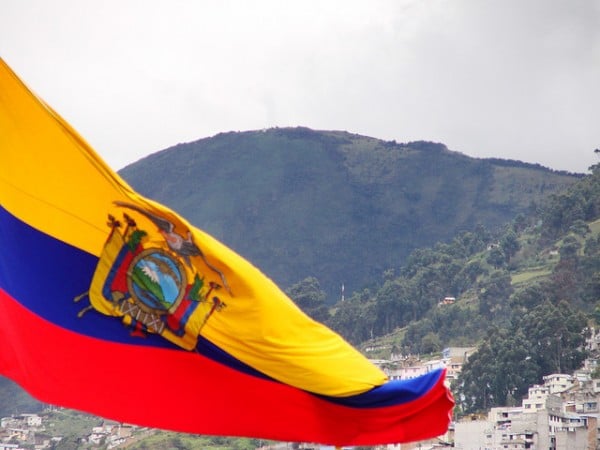
Photo Credit: Yamil Salinas Martínez
By Ambassador Nathalie Cely, Ecuador’s Ambassador to the U.S.
The “American Dream” has been the national ethos of the United States for generations. Its timeless appeal lies in its sheer optimism: those who work hard and play by the rules can achieve anything. Last month’s State of the Union address by President Obama, however, noted that the ladder between the dream and the reality of progress for most Americans is shaky. The persistence of economic inequality in the U.S. has the nation publicly soul-searching as people ask what their expectations are for themselves and their children. What do they need to live a happy life?
As a Latin American serving in the United States, it is clear to me that the peoples of North and South America share the same aspirations. We want secure, fulfilling, productive lives, free from want and fear. We want a better future for our children. These are our common dreams.
The process to turn these dreams into reality is an intimate national journey. As the United States rethinks how to best achieve its dreams, in Ecuador—as in much of Latin America—we increasingly believe we have found our path.
To endure, a national dream must be tempered by the expectation that there is a fair playing field and a sense of shared responsibility for making the dream a reality. When that expectation is unrealistic, we lose faith in the future.
In Ecuador we believe the dream must be achieved at a group, not individual, level; society at large, rather than just the individual alone, must move forward financially as well as in terms of access to quality healthcare, education and infrastructure.
Ecuador once faced severe income inequality, economic stagnation and political instability. But our Government has embarked on a series of reforms aimed at lifting up our people, raising their confidence that tomorrow would be better than today. Though we are blessed with some of the planet’s most precious natural resources, we have realized that our people are our most valuable asset and we have invested millions in this human talent to preserve their future. We have invested heavily at the same time in the implementation of structural reforms in education at all levels, from early education to providing scholarships to our citizens to attend the world’s most prestigious universities. Our reforms to our healthcare system and infrastructure development have created a spirit of fairness among our citizens who can be confident that meritocracy is the key that opens doors in both public and private sectors. And we have implemented sweeping reforms to our legal and judicial systems to begin eliminating corruption and restore faith and trust among our people.
The results can be seen in the sentiment of our citizens. New research shows this model has brought us unprecedented happiness, progress, and pride, and fueled the ambition to keep trying to improve. According to a recent study of people living in Latin America by the non-profit Latinbarómetro, Ecuador leads all countries in image of progress, followed by Panama, Nicaragua and Uruguay. A nation’s sense of progress is critical not only for maintaining public optimism, but confidence and stability of the society at large.
The study also shows that Ecuador leads expectations to improve its economic situation in the long run. This is in large part due to the fact that Ecuador currently has the best perception of the fairness of distribution of wealth, and is the only country where the majority of citizens think the distribution is fair (58 percent vs. an average of 25 percent).
This is more than an anecdotal correlation between optimism and income equality. Ecuador’s collective dream for its people has inspired thousands of U.S. retirees to move to Ecuador. In fact, for the fifth year running, an annual survey by International Living ranks Ecuador the top retirement destination for these American Dreamers to live out their golden years. Quality health care is readily accessible in Ecuador and inexpensive, and property taxes are low.
The end result is that Ecuador was second only to Uruguay in the percentage of our citizens who feel they are “satisfied” with our system of democracy. The vibrant public discourse from all points along the political spectrum in our country is evidence that our citizens believe in our dream and are determined to work together to see it become reality.
While President Obama’s State of the Union reflects an evolving discussion in the United States about how to best achieve its dream, ultimately this is not just an “American” issue, it is a global issue. As a new Oxfam study highlighted, the world’s richest 85 individuals have as much wealth as the poorest three billion.
To Ecuadoreans and countless others across Latin America, there is no dream possible amid such income inequality. And income equality is not possible without the collective commitment and action of society at large. That is our path, where surely we need to face and battle together many more challenges to make our dreams reality.
Nathalie Cely has served as the Ambassador of Ecuador to the United States since January 18, 2012. You can find her full bio here.